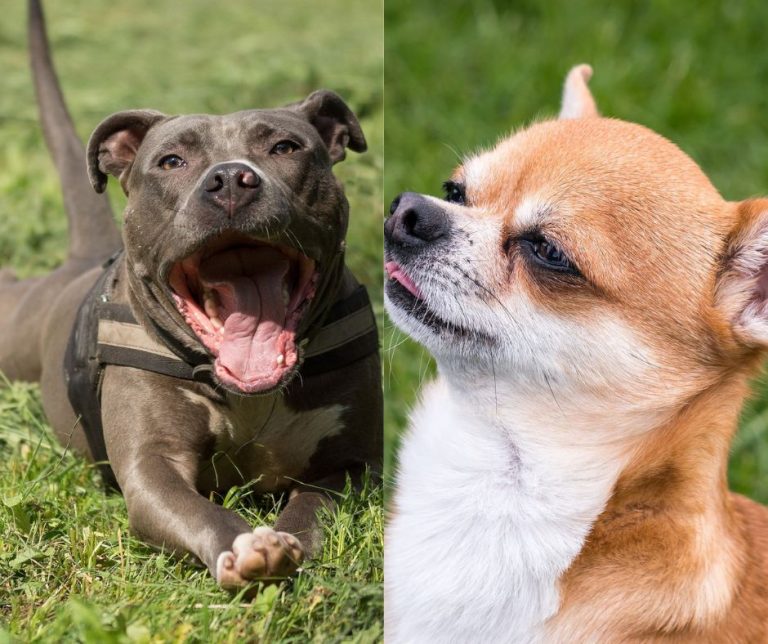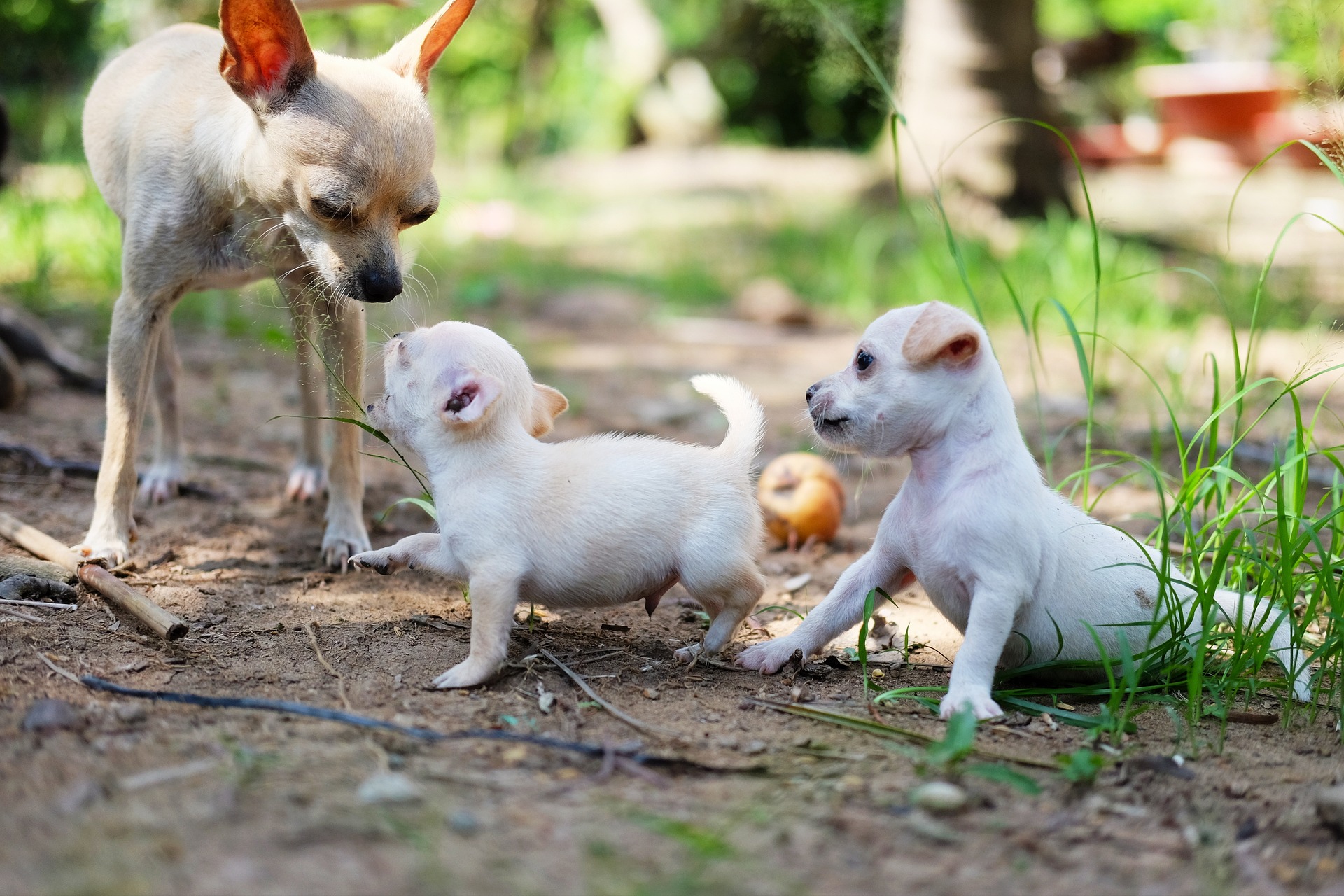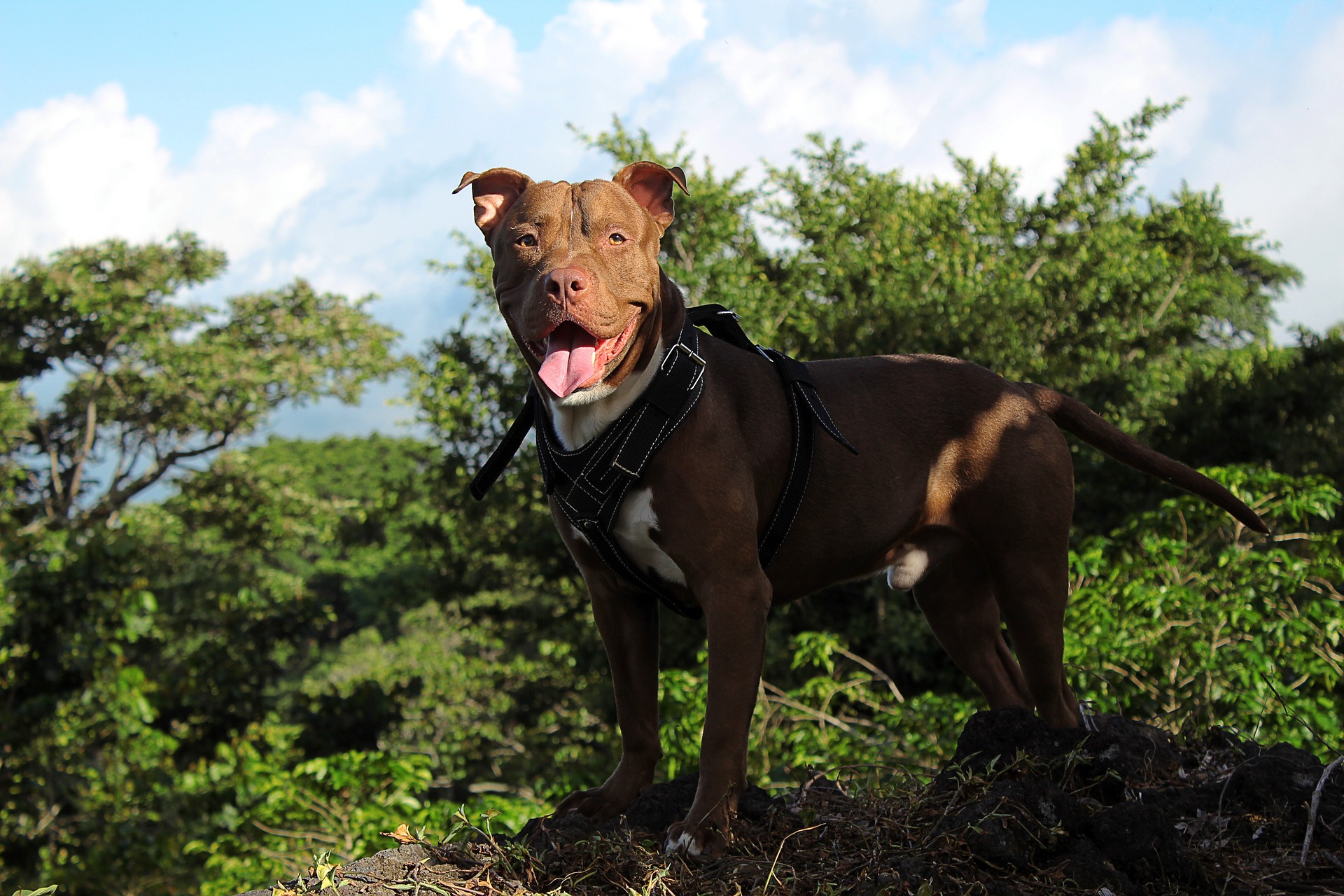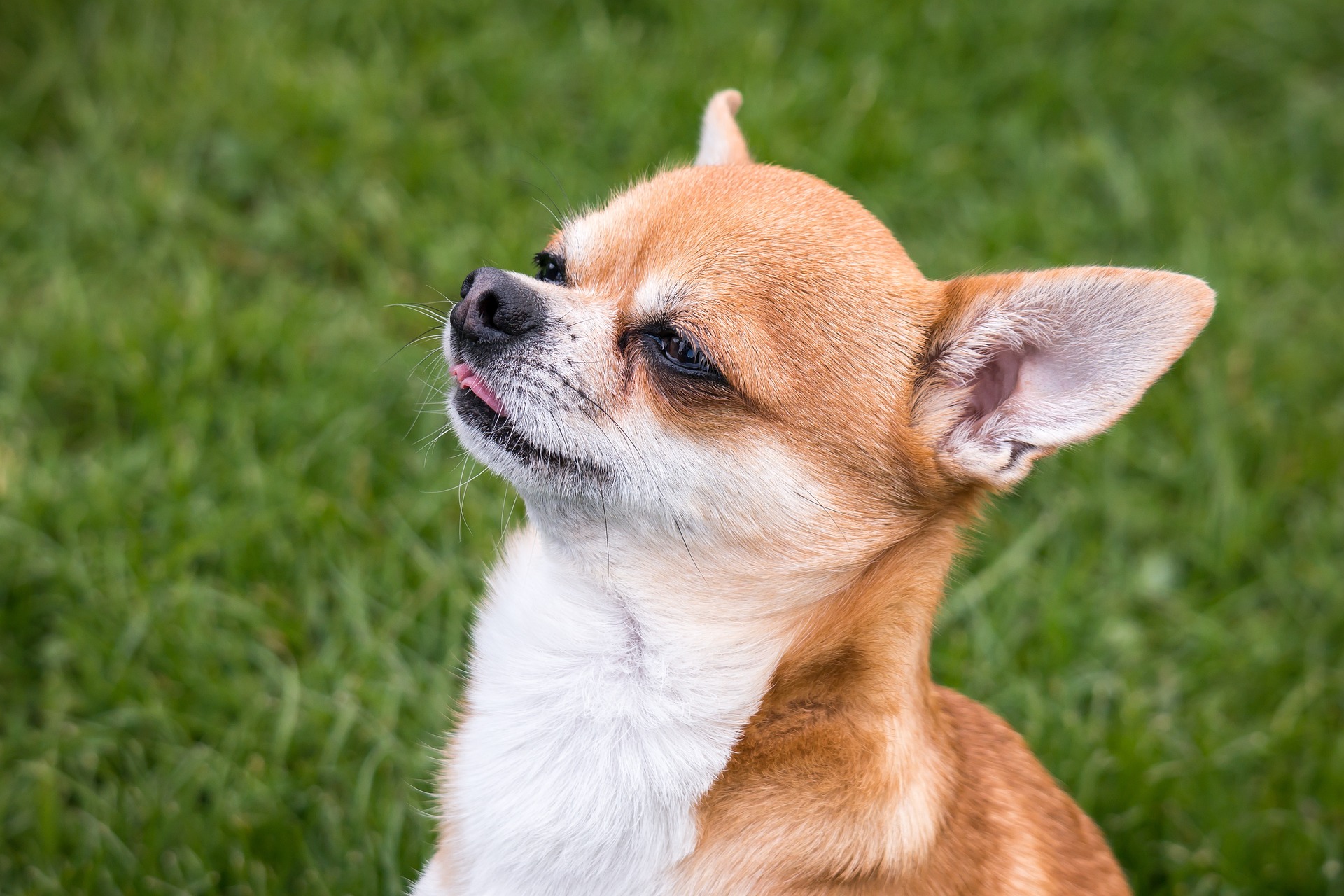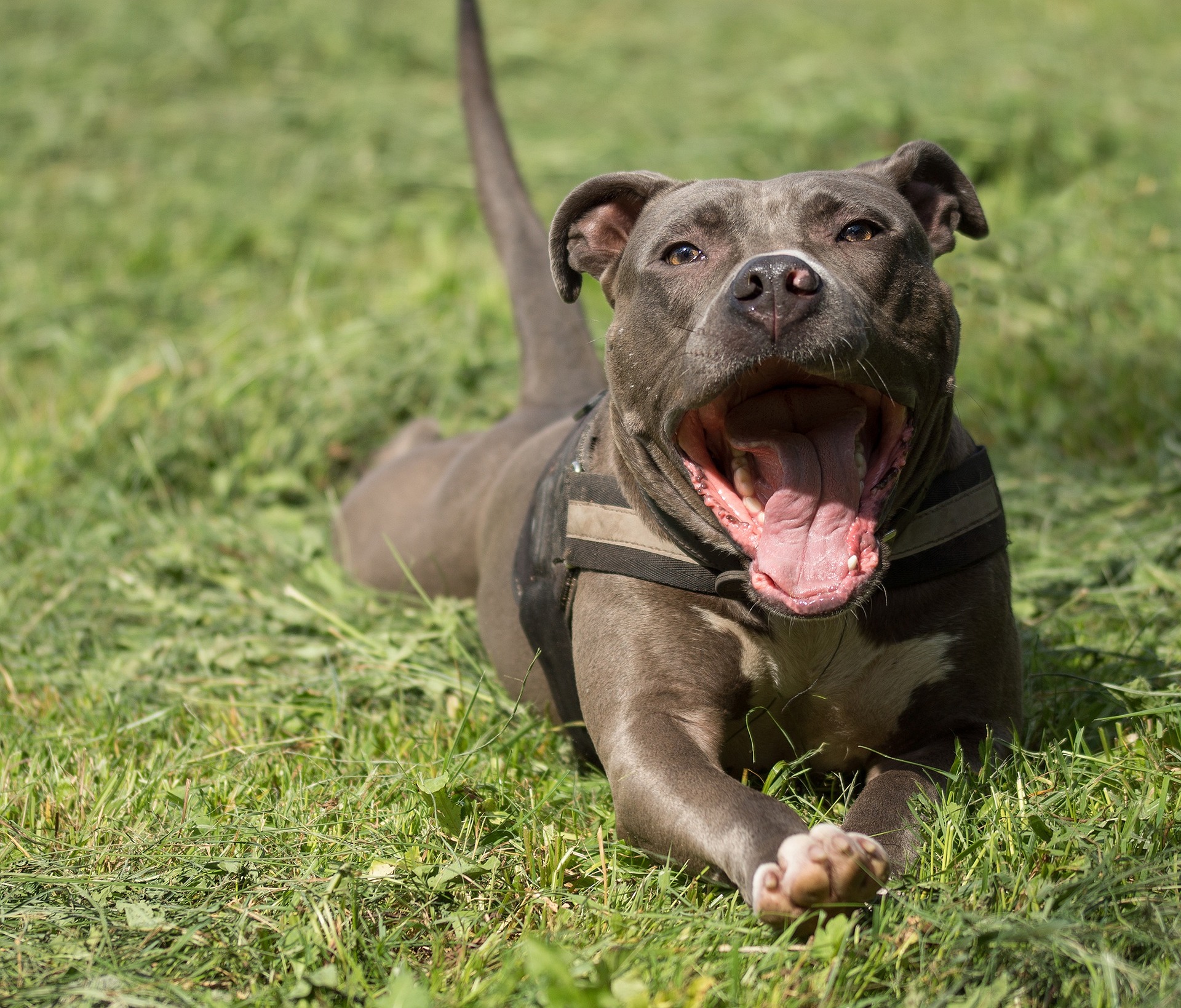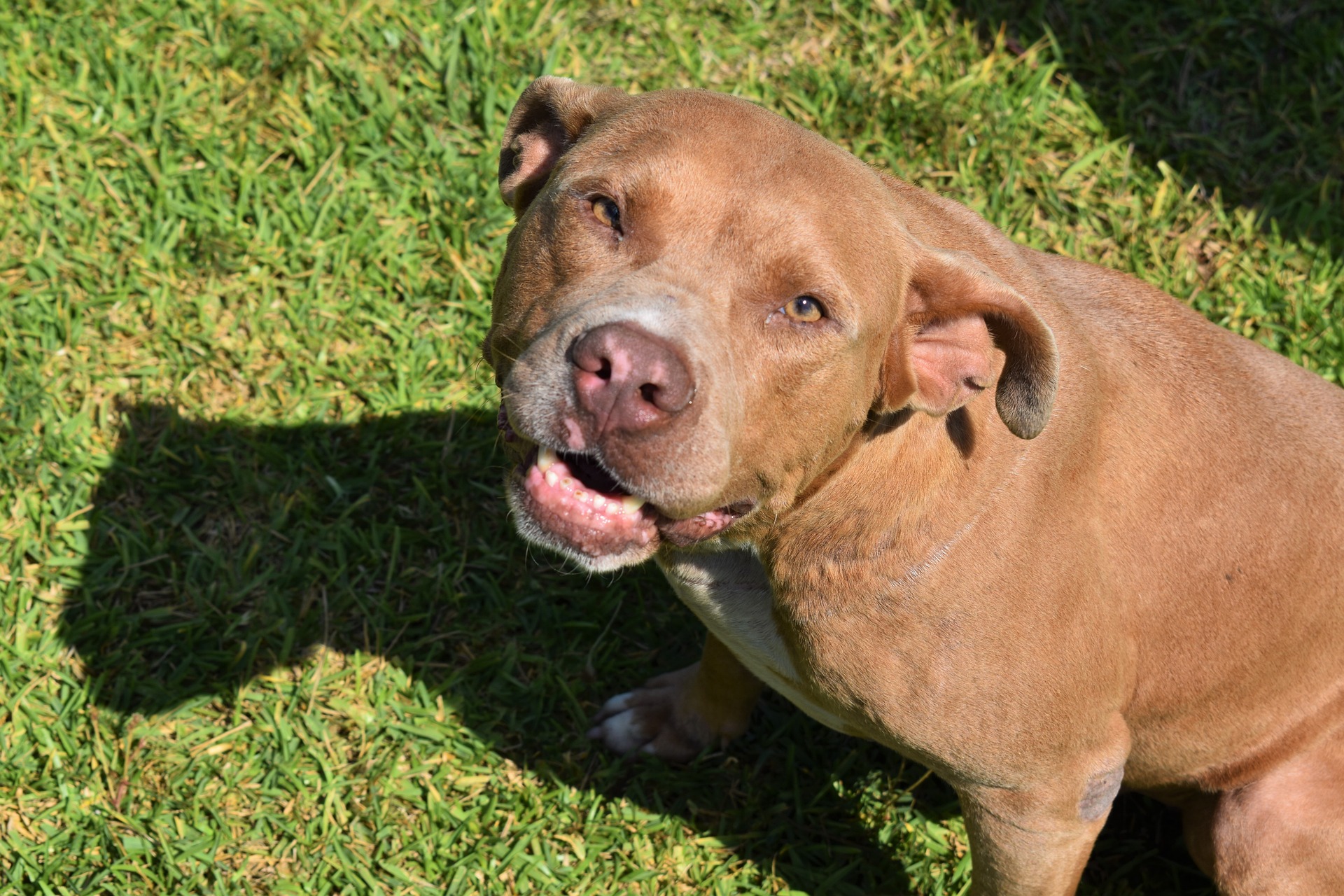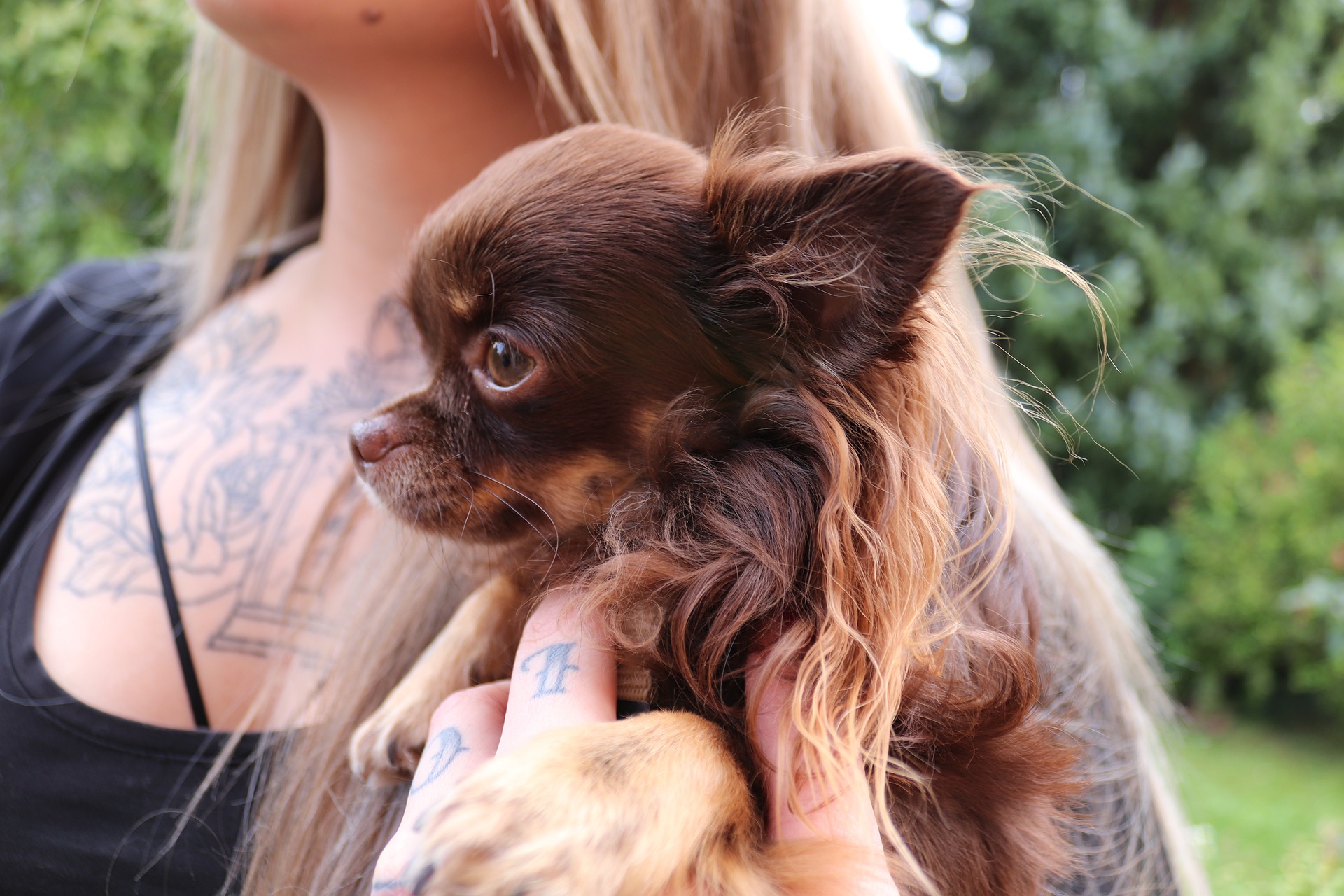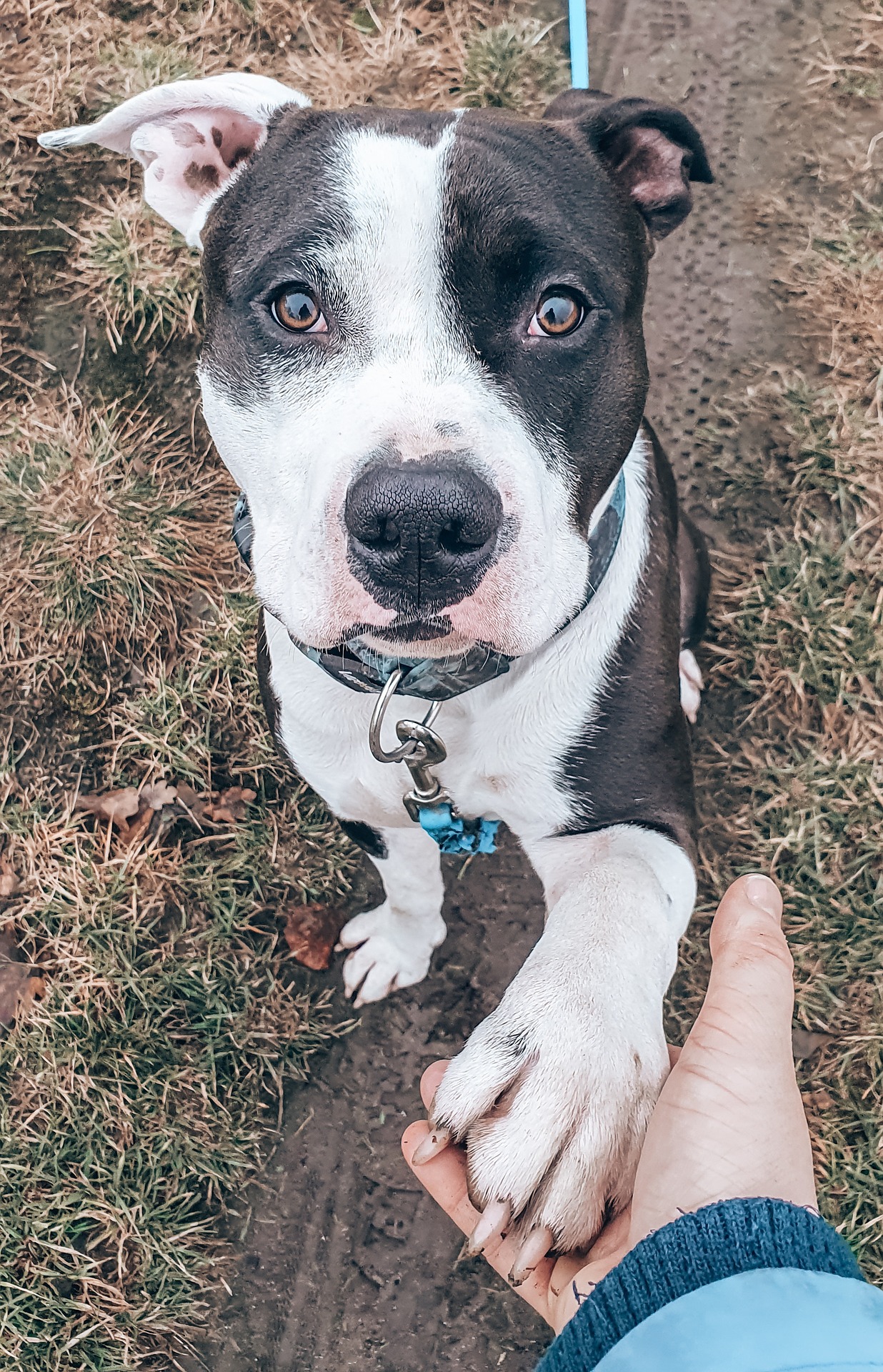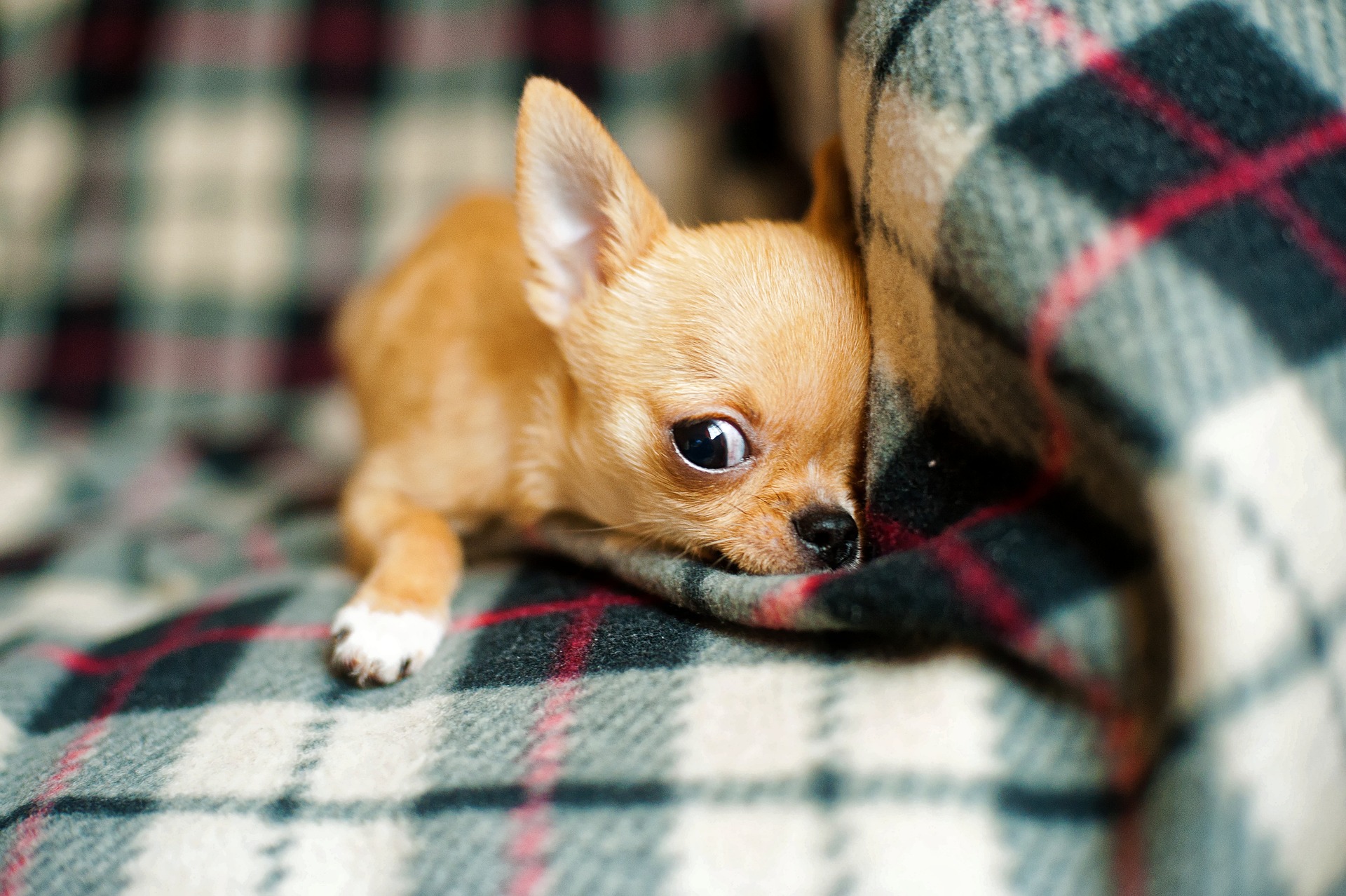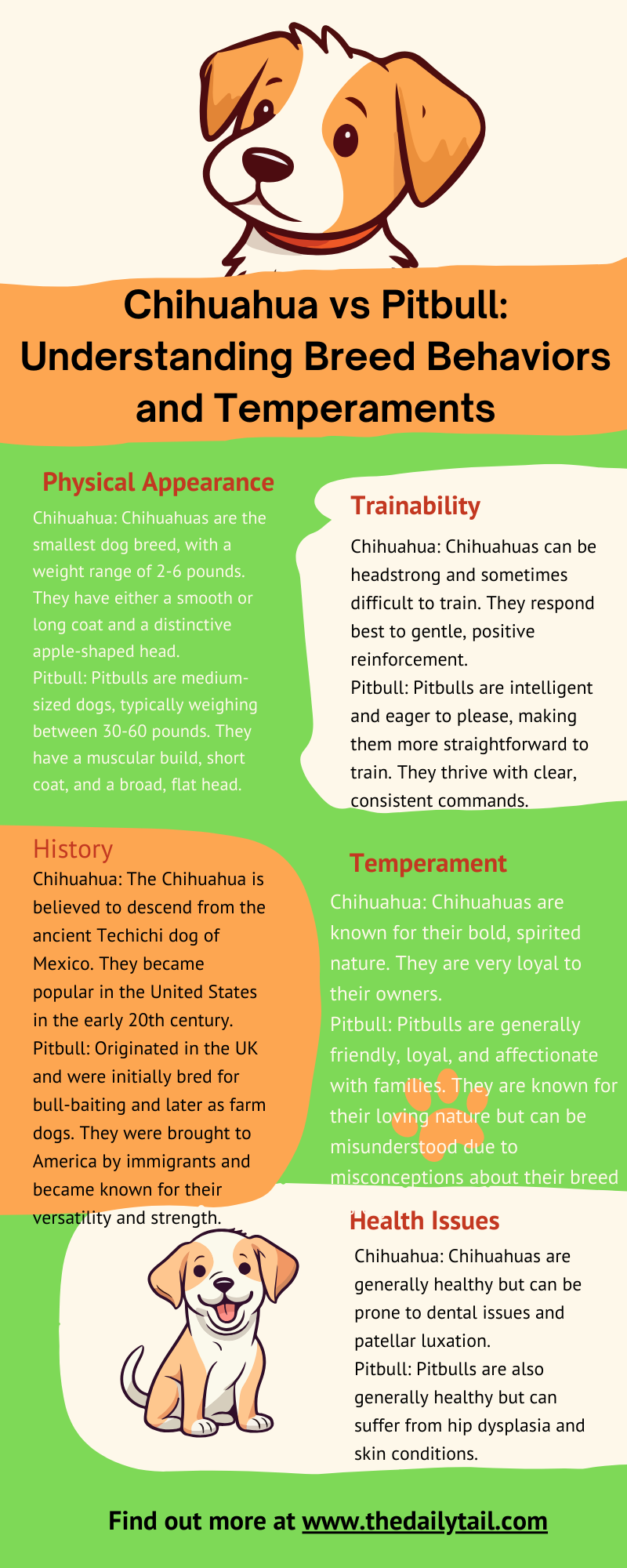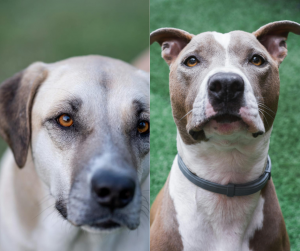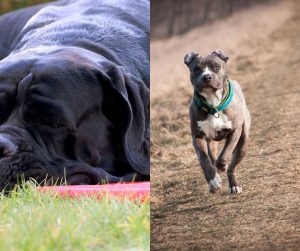When considering the addition of a furry companion to the family, the deliberation between adopting a Chihuahua and a Pitbull can present quite a unique set of considerations.
These two breeds couldn’t be more different in terms of physical characteristics, historical backgrounds, and popular stereotypes. Chihuahuas are known for their diminutive size and bold personality, often seen as the perfect lapdog with a penchant for being fiercely loyal to their owners. On the other hand, Pitbulls, which encompass breeds like the American Pit Bull Terrier, are muscular and powerful yet are often affectionately referred to as “nanny dogs” due to their loving and protective nature towards their families.
Navigating the contrasting personalities and temperaments of Chihuahuas and Pitbulls offers insightful revelations about their compatibility with different lifestyles and living situations.
Chihuahuas are vivacious with bursts of energy, thriving in environments where they can be close to their human companions.
Pitbulls, despite their robust appearance, are equally affectionate and enjoy engaging in activities that allow them to expend their energy and satisfy their need for mental stimulation.
Both require dedicated care and attention to address their respective health predispositions, exercise needs, and socialization requirements to nurture their well-being and ensure they form balanced relationships with their owners. Let’s take a deeper look into the Chihuahua vs Pitbull dog breed comparison.
Key Takeaways
- Chihuahuas and Pitbulls offer distinct differences in size, care needs, and temperament.
- Prospective owners should consider lifestyle compatibility when choosing between the two breeds.
- Both breeds require responsible care, socialization, and commitment to their health and happiness.
Dog Breeds Overview
In examining the stark contrasts between Chihuahuas and Pit Bulls, it’s fascinating to delve into their histories and see how these breeds have been shaped by recognition and popularity trends.
Breed Origins
Chihuahuas trace their lineage back to ancient Mexico. They are named after the Mexican state of Chihuahua, where the earliest specimens of the breed were discovered. It’s believed they descend from a companion dog favored by ancient civilizations in the region, such as the Toltecs and Mayas. These small, vivacious dogs were known as Techichi, and they played significant roles in religious ceremonies and were cherished companions.
On the other hand, Pit Bulls have a more varied background involving several breeds. They were originally bred from Old English Bulldogs and terriers to create the American Pit Bull Terrier, a dog that combined the strength of the bulldog with the agility of terriers.
These dogs have ancestral ties to the Staffordshire Bull Terrier and can often be confused with the American Staffordshire Terrier, both of which have similar traits but are distinct breeds in their own right. The history of Pit Bulls is marked by their use in blood sports like bull-baiting and later, sadly, dog fighting, but today they are more commonly seen as loyal companions and family pets.
The American Kennel Club doesn’t recognize the American Pitbull Terrier as a separate breed. Yet, the United Kennel Club does it. The AKC lists American Staffy, American Bully, American Bulldog, and American Pitbull under the same umbrella term.
Recognition and Popularity
Breed recognition for Chihuahuas is well-established; they’re a staple in kennel clubs around the world. Always up there in the popularity stakes, these pint-sized canines have consistently held the spotlight in dog shows and popular media, solidifying their status as beloved pets.
Pit Bulls have a more complex relationship with recognition. While the American Pit Bull Terrier is recognized by the United Kennel Club, the breed is not recognized by the American Kennel Club, though their close cousins, the Staffordshire Bull Terrier and the American Staffordshire Terrier, are. Despite past controversies, Pit Bulls have more recently garnered vocal support from people who are drawn to their intelligence, loyalty, and heartfelt devotion, contributing to their rising popularity as family pets.
Physical Characteristics
When considering Chihuahuas and Pitbulls, their physical characteristics are as distinct as one might expect given their reputations. They’re like apples and oranges: one fits in a handbag, the other commands the dog park with a formidable presence.
Size and Build
Chihuahuas are undeniably one of the smallest dog breeds, standing only about 5 to 8 inches tall at the shoulder and weighing around 3 to 6 pounds. They often exhibit an apple-shaped head and large, expressive eyes, adding to their appeal. Nowadays, we have Apple Head Chihuahua and Deer Head Chihuahua.
On the other side of the size spectrum, Pitbulls are medium-sized dogs, with heights ranging from 17 to 21 inches and a weight of 30 to 65 pounds. These numbers contribute to the Pitbull’s muscular build and compact, athletic frame that highlights their strength and agility.
Coat and Colors
Moving on to their coat characteristics, Chihuahuas have a variety that contrasts with the overall uniformity seen in Pitbulls.
Chihuahuas can sport either a short-coat or a long-coat type and are known for moderate shedding.
Pitbulls, however, have a distinct short, smooth coat that is generally low maintenance in terms of grooming and shedding.
In terms of color, both breeds offer a painter’s palette of options. Chihuahuas come in a wide array of colors, including but not limited to fawn, black, white, chocolate, and silver.
Pitbulls also showcase a plethora of colors ranging from solids to multicolored patterns, including brindle, black, white, and red.
These differences in size, height, weight, and coat create the unique appeal of each breed and can contribute significantly to a potential owner’s choice. Whether one values the compactness of a Chihuahua or the solid, muscular form of a Pitbull, each breed carries its distinctive set of characteristics that makes them special to their enthusiasts.
Personality and Temperament
When contemplating the choice between a Chihuahua and a Pitbull, it’s essential to understand their distinct personalities and temperaments. These breeds exhibit unique behavioral traits and levels of aggression and playfulness that are significant to consider for a harmonious pet-owner relationship.
Behavioral Traits
Chihuahuas are known for their bold and spirited personality, often displaying a confidence that belies their small size.
They can be affectionate and loyal to their owners, coupled with a touch of sassiness. Their intelligence makes them easy to train, but patience is required due to their strong-willed nature.
On the other hand, Pitbulls often exude affection, loyalty, and a pleasing temperament.
They seek to form strong bonds with their humans, craving attention and interaction.
Although their appearance might suggest a protective and tough dog, they are generally intelligent and ready to learn, responding well to training with consistent and loving guidance.
Aggression and Playfulness
In terms of aggression, Chihuahuas can be surprisingly fierce for their size, often possessing a significant prey drive and a tendency to be territorial. However, it’s imperative to note that aggression can stem from lack of proper socialization or training.
Pitbulls, while historically bred for dog fighting, have had their aggressive tendencies widely misunderstood and overstated.
With appropriate socialization and positive reinforcement training methods, they show a lower propensity for unprovoked aggression, instead revealing a playful and gentle nature.
Both dogs can show a playful side, with Chihuahuas enjoying interactive games that challenge their wit, while Pitbulls may prefer more physical play due to their strength and energy. However, the level of playfulness varies from dog to dog, reflective of individual personality rather than breed alone.
Chihuahua vs Pitbull Health and Care
When considering a Chihuahua or a Pitbull as a pet, one must be mindful of their distinct health care needs. Proper attention to these aspects ensures these lovely companions lead a happy and healthy life.
Common Health Issues
Chihuahuas and Pitbulls may face different health challenges during their lifetimes.
Chihuahuas often enjoy a longer lifespan, usually 12 to 18 years. They can be prone to issues like hypoglycemia, heart problems, and dental hygiene concerns due to their small size.
Pitbulls, with a life expectancy of about 12 to 14 years, can experience hip dysplasia, allergies, and hereditary cataracts.
Keeping an eye on these common health issues is key to providing a nurturing environment for either breed. Here is a fun fact. Because the Chihuahua is one of the longest-living breeds, it has been used for crossbreeding. And there is even a Chihuahua Pitbull mix. Pitbulls are also often used for crossbreeding.
Grooming and Exercise Needs
Grooming, for both breeds, goes beyond keeping them looking good — it’s crucial for their overall health. Regular brushing helps distribute natural oils for a healthy coat and reduces shedding.
Chihuahuas sometimes require minimal grooming due to their short fur, but long-haired varieties need more frequent brushings.
Pitbulls, with their short, stiff coats, require regular brushing as well, but less often.
Exercise plays an important role, too.
Chihuahuas have lower exercise needs but shouldn’t be underestimated — they enjoy playtime and short walks.
Pitbulls, in contrast, require plenty of physical activity to stay fit and happy. Routine exercise also helps in preventing obesity and related health problems in both breeds.
Remembering that each dog is an individual and will have their own unique needs is important. Frequent check-ups with a vet, coupled with an attentive eye on their day-to-day health and happiness, will go a long way in caring for either a Chihuahua or a Pitbull.
Living with Your Dog
When choosing between a Chihuahua and a Pitbull, it’s important to consider how the dog will fit into your daily life and household. These breeds have different needs and characteristics that will shape your experience as an owner.
Family and Social Considerations
Pitbulls are often affectionate and loyal companions, thriving in a family environment where they receive plenty of attention and interaction.
Their size and energy level, however, require ample space and exercise, making them more suitable for houses with yards rather than small apartments.
They tend to be good with children, provided they have been properly socialized, but their strength requires supervision.
In contrast, Chihuahuas are more adaptable to apartment living due to their small size.
While this breed’s fierce loyalty can make them excellent companions, they may not suit households with very young children, as Chihuahuahuas can be delicate and, at times, snappy if improperly handled.
- Pitbull:
- Size: Requires more space
- Energy: High, needs active lifestyle
- Children: Good with kids when socialized, need supervision
- Chihuahua:
- Size: Suited for apartments
- Energy: Less demanding
- Children: Better with older kids or adults
Chihuahua vs Pitbull Training and Socialization
Training and socialization are key for both breeds to become well-adjusted pets.
Pitbulls are strong and sometimes willful dogs, requiring consistent training from an early stage.
They generally have a good trainability level, and positive reinforcement methods work well.
On the other hand, the Chihuahua dog breed may prove to be a challenge for novice owners because they can develop “small dog syndrome” if not trained firmly and with consistency.
Both dogs have distinct social needs; Pitbulls often crave more socialization with other dogs and humans to maintain their friendly nature,
whereas Chihuahuas may prefer the company of their owners over other animals.
Starting socialization early is crucial for both to prevent any aggressive tendencies and to ensure they become well-mannered companion dogs.
- Pitbull:
- Trainable: Responds well to positive training
- Social Needs: High, benefits from early and frequent socialization
- Chihuahua:
- Trainability: May be challenging, consistency is key
- Social Needs: Moderate, can be more selective with social interactions
Choosing the Right Dog for You
Understanding Dog Needs
Chihuahuas: They are small in size, generally weighing between 2 and 6 lbs, which makes them suitable for apartment living.
Despite their petite stature, they crave attention and require consistent mental stimulation.
Their life expectancy typically ranges from 14 to 16 years. They are also known for their spirited character, often protective and fiercely loyal to their owners.
- Exercise Needs: Moderate; daily walks and playtime to prevent boredom
- Living Space: Well-suited for small spaces like apartments
- Supervision: Prefer being with their human rather than being left alone for long periods
Pitbull terrier dogs: On the opposite end, Pitbulls are robust dogs, with a healthy weight ranging from 30 to 85 lbs.
Due to their size and energy levels, they’re best suited for more spacious homes with yards.
Their average life expectancy is around 12 to 14 years. They are highly intelligent, eager to please, and can be quite affectionate with proper training and socialization.
- Exercise Needs: High; daily vigorous exercise is crucial
- Living Space: Need more room to move, a house with a yard is ideal
- Supervision: Thrive on human companionship and require active engagement and firm, patient training
Costs and Commitment
When deciding on a dog breed, consider both the initial and ongoing costs associated with their care.
Price points for both breeds can vary significantly depending on whether you choose to adopt from a shelter, go through a reputable breeder, or other sources.
It’s critical to avoid puppy mills, as they often compromise the well-being of the dogs.
Chihuahuas:
- Price Range: $500 – $1,500 from breeders; often less if adopted
- Other Costs: Veterinary care, toys, grooming, and routine health maintenance
Pitbulls:
- Price Range: $800 – $2,500 from breeders; adoption fees vary
- Other Costs: Vet care, higher food intake, training, and possibly pet insurance
Comparing Chihuahuas and Pitbulls
Chihuahuas and Pitbulls are distinct not only in their size but also in how they fit into various lifestyles and their unique personality traits. They bring different qualities to a household and can adapt to different environments, proving that there is much more behind their reputations than size alone.
Suitability for Different Lifestyles
Chihuahua dogs are the pint-sized dynamos, ideal for compact living spaces, such as apartments or small homes.
They are known for their spurts of energy and can easily have their exercise needs met with indoor play or short walks.
These traits make them well-suited for individuals with less active lifestyles or limited space.
On the other hand, Pitbulls are muscular and robust, fitting seamlessly into an active lifestyle.
These dogs thrive with ample room to run and play, making them a great match for families or individuals with access to a yard or the outdoors.
They are agile, usually kid-friendly, and generally enjoy being part of an active household.
Personality Differences
The personality of a Chihuahua is like a large dog trapped in a small body. They are often fiercely loyal and usually form an intense bond with their owners. This breed can be quite courageous and lively, but its small size means its bursts of assertive behavior are more manageable.
Pitbulls, contrastingly, are often labeled as the ‘nanny dog’ due to their gentle and loving nature with family. Don’t let their tough exterior fool you; they can be incredibly affectionate. Despite their strength, they are typically very trainable and can show impressive cognition. They can be both energetic and mellow, adjusting their personality to the vibe of their home.
It’s important to note that the environment plays a crucial role in shaping the behavior of these dogs, no less than their training and upbringing.
Each breed presents unique qualities that can blend beautifully with the right family. Whether it’s a crossbreed like a Pitbull Chihuahua mix or choosing one over the other, understanding their characteristics can help ensure they become a beloved part of any home.

